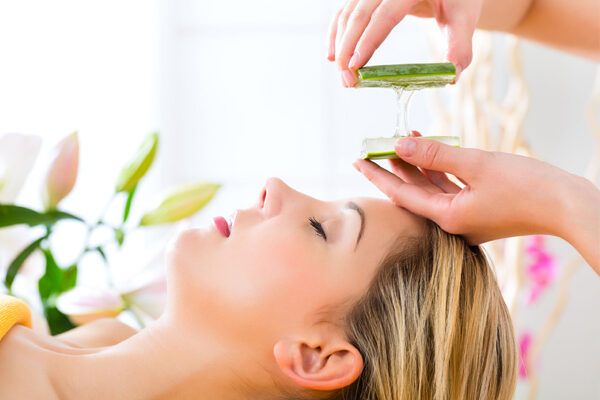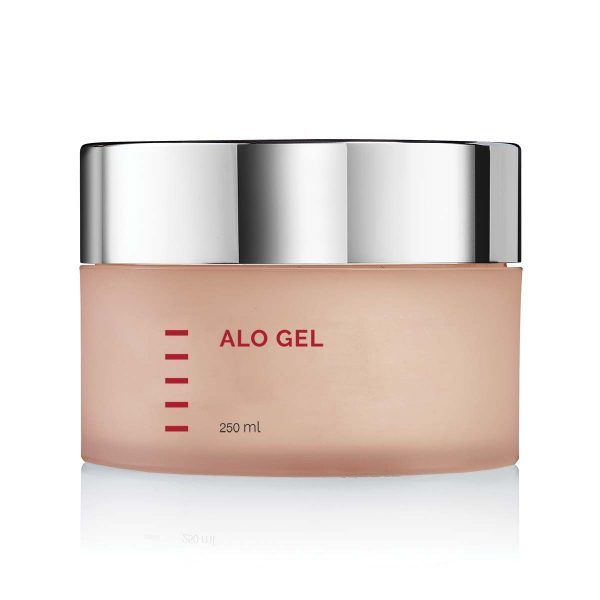Aloe Vera: The Magic Plant for Skin Care
Aloe Vera: The Magic Plant for Skin Care
The aloe vera plant has been used as a medicinal plant for thousands of years in different cultures. The Ancient Egyptians called it “the plant of immortality” and in Ancient Greece it was known as “the magic plant”. And for a good reason. Nowadays, aloe vera is considered to be one of the most researched plants in the world of science, and it has been studied in the context of both internal and external usages, in lab research and in research on the human body.
The gel, which is produced from the internal part of the leaves, is rich in hundreds of ingredients, including vitamins, minerals, amino acids, anti-inflammatory substances, soothing and rehabilitating substances, and even anticarcinogens. Here are five ways in which aloe vera can benefit the skin.

Skin moisturizing
Aloe vera gel is a moisturizing substance, which softens the skin and has been found to be effective in improving the level of moisture in the skin. Thus, for example, in a study published in the journal Skin Research and Technology, researchers applied different concentrations of aloe vera gel onto women’s skin. The researchers measured the moisture contents in the stratum corneum (the uppermost layer of the skin) before and after a single application and also one week and two weeks after the daily application of the gel onto the skin.
The findings of the research indicated that products that contain aloe vera extract in concentrations of 0.25% and 0.50% increased the water contents of the stratum corneum following a single application onto the skin. After two weeks of use, all of the products, including those that contained aloe vera extract in a concentration of 0.10%, achieved a similar influence. The researchers deduced that aloe vera gel is an effective natural ingredient in improving the skin’s moisture.
Antiaging
The richness of antioxidants that aloe vera gel contains also makes it an effective antiaging component. Among others, it is rich in vitamins C, E and beta-Carotene. Moreover, according to a study published in the journal Annals of Dermatology in 2009, the intake of aloe vera through drinking in a dosage of 1,200 milligrams per day increases the production of collagen in the skin, reduces wrinkles and improves the skin elasticity within 90 days.
Reducing acne and infection
Aloe vera gel is a highly effective ingredient for the treatment of acne and skin infections. Its healing abilities operate on several levels. Firstly, the antimicrobial, antiseptic and anti-inflammatory properties protect the skin from bacteria and other pathogens that cause infection and inflammation. It contains components, including polysaccharides and gibberellins, which enhance the growth of new cells, and also glycoproteins that reduce inflammation and redness. Furthermore, as an astringent, aloe vera gel reduces the size of the skin pores, thus assisting in decreasing the penetration of pollutants and bacteria. In Ayurvedic medicine, the aloe vera plant is also used to treat eczemas and psoriasis.
Treating scars and lightening flaws
Thanks to its ability to accelerate cell regeneration, fight inflammation and reduce redness, aloe vera is an excellent natural treatment for acne scars and stretch marks. Combined with vitamin C, it can even help in the lightening of age spots and sunspots.
Soothing the skin, healing and repairing tissue following burns and injuries
This is probably the most recognized and prevalent use of the aloe vera gel. Thanks to the anti-inflammatory, calming and cooling ingredients it contains, this gel is the perfect remedy for soothing irritated skin and for the treatment of skin burns, cuts and various injuries. The aloe vera gel provides the skin with a protective layer that helps preserve the moisture in the irritated injured area. The antioxidants, anti-inflammatory substances and vitamins it contains accelerate the healing processes in the tissue. A study published in 2008 in the medical journal Skin Pharmacology and Physiology found that when applied for a duration of more than 48 hours, the anti-inflammatory properties of the aloe vera gel even exceed those of Hydrocortisone 1%, an anti-inflammatory cream that belongs to the steroid group. A research review published in 2007 in the journal Burns discovered that aloe vera gel can reduce the healing period of first and second degree burns by 9 nine days, when compared to the control group. The researchers’ explanation for this amazing result is the fact that aloe vera gel accelerates the skin cells’ regeneration process to a rate that is nearly 8 times faster (compared to a state where aloe vera gel is not applied at all), and penetrates the epidermis layer at a pace that is 4 times higher than water.
